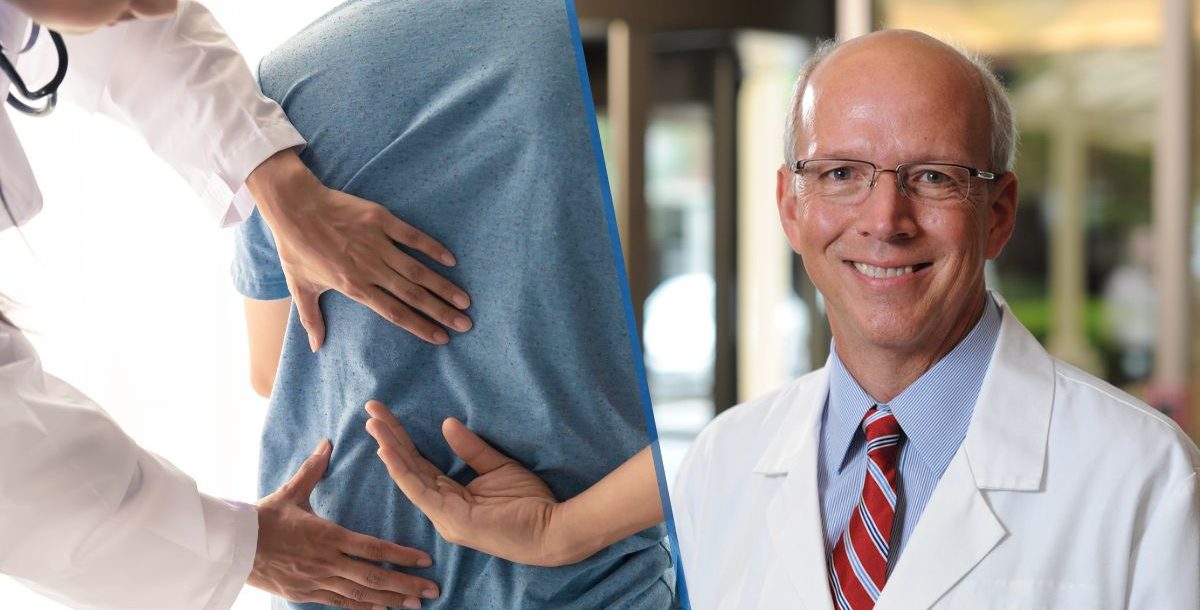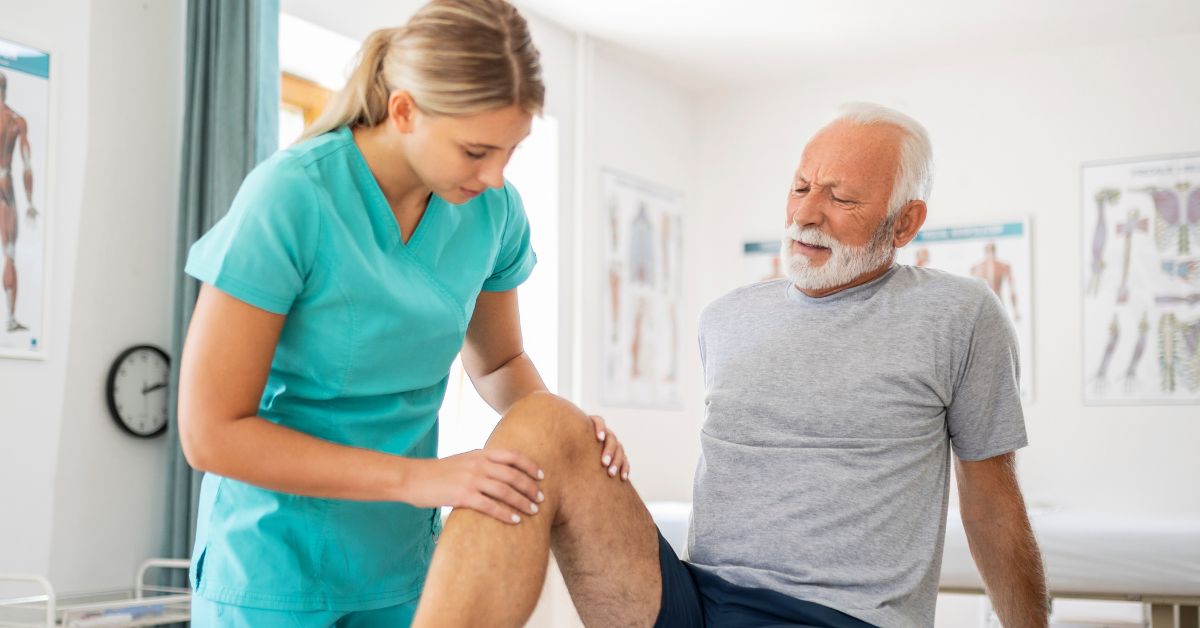Learn what a slipped disc feels like and what your next steps are if you have one.
A slipped disc is a non-medical term for a herniated disc or ruptured disc in your back. A slipped, herniated or ruptured disc isn’t the same as a less painful bulging disc. These can happen anywhere along your spine.
Bret Ferree, MD, a spine surgeon with Mercy Health — Orthopedics and Sports Medicine in our Cincinnati market, shares his insights on what may be causing your back pain.
The intervertebral discs in your spine are strong ligaments that connect each of your vertebral bones to the next, acting as shock-absorbing cushions between your vertebrae.
“As you age, so do your discs,” Dr. Ferree shares. “Aging discs can become stiff and the outer layers of the disc may tear.”
Some of the softer inner cartilage leaks out. Herniated discs cause pain when they protrude into and inflame nearby nerves.
What does a slipped disc feel like?
“A slipped disc can cause sharp and severe back pain or neck pain,” Dr. Ferree adds.
This pain can get worse when you’re active or even when you’re sitting. It might feel better when you’re lying down. However, small motions like coughing or sneezing may cause the pain to return. A slipped disc puts painful pressure on surrounding nerves when you’re sitting down.
Slipped disc symptoms
You may not have any symptoms if you have a herniated disc. If you do, pinpointing the location of your pain may help determine where you have one. You may feel pain, numbness and tingling in different areas of your body. It depends on which of the three spinal regions it is located in.
If you have pain after walking short distances, you may have a lumbar-region slipped disc. A herniated disc in your lower back (lumbar region) causes symptoms like:
- Foot pain: A slipped disc in your lower back can push on your sciatic nerve. This causes shooting pain through your leg to your toes.
- Weak leg: Nerves run from your spinal cord to your legs. This is why a herniated disc in your lower back can cause leg problems and pain in your buttocks, thigh and calf.
Neck and upper back pain are often due to a herniated disc. A slipped disc in your upper back (cervical region) causes symptoms like:
- Numb hands: A slipped disc in the area of your neck may press on nerves that affect the feeling in your fingers.
- Shoulder and arm problems: A cervical herniated disc can cause multiple symptoms in your shoulders or arms, such as weakness, numbness and tingling.
A slipped disc in your mid-back (thoracic region) causes symptoms like:
- Pain when laughing: If you have a herniated disc in your middle back, laughing causes your core muscles to tweak your back’s nerves.
- Leg problems: A thoracic slipped disc causes multiple symptoms in your legs, such as sensitivity, weakness, numbness and tingling.
It’s possible you have a bulging disc. But, if these symptoms don’t go away within six weeks, it’s time to see a health care provider.
Slipped disc diagnosis
A physical exam locates your pain. Your doctor tests your reflexes, muscle strength and ability to walk. Imaging tests confirm if you have a slipped or herniated disc. The types of imaging tests include:
- CT scan, which creates a cross-sectional image of your spinal column.
- MRI that confirms the location of a herniated disc and affected nerves.
- Myelogram, or injected dye in your spinal fluid, wihch uncovers herniated discs.
- X-rays that rule out back pain issues such as tumors, infections, misalignment and broken or fractured bones.
To find nerve damage, your doctor may recommend an electromyogram. This is a test that measures how well electrical impulses move along your nerve tissues. The test picks up interference in the electrical pulses. The electricity doesn’t flow where you have damage.
Dr. Ferree warns, “An untreated and severe slipped disc can lead to permanent nerve damage. It can also lead to loss of bladder and bowel control.”
Slipped disc treatment
First, your doctor may suggest medication. There are over-the-counter (OTC) or prescribed medications to help the condition. OTC medications include ibuprofen or naproxen. Painkillers or muscle relaxers may offer short-term relief. Cortisone injections may reduce inflammation to give your back and nerves a chance to heal.
If medications alone don’t help, you might need physical therapy to strengthen your back and minimize the pain. If medication or physical therapy fail, you may need surgery. Surgery isn’t a common treatment for this type of injury, but when necessary, the surgeon removes only the affected part of the disc to relieve your pain.
“Fortunately, many times we find herniated discs will heal without surgery,” Dr. Ferree says.
Life after a slipped disc
You may want to add alternative treatments to your medication or physical therapy. Check with your doctor before you add chiropractic, acupuncture or massage treatments.
“To avoid stiff joints and back muscles, I recommend aerobic exercise, core-strengthening exercises and gentle stretching, such as yoga,” Dr. Ferree shares. “They should help you recover fully from a slipped disc and help prevent recurrent slipped discs.”
It is important to seek treatment if you have back pain and think you may have a slipped or herniated disc. Dr. Ferree adds that sometimes more serious problems can be mistaken for a herniated disc.
“Bone spurs in the spine with nerve compression, arthritis-related cysts in the spine, compressed nerves in the leg or arm, such as carpal tunnel syndrome and, rarely, spinal infections or tumors may be the cause,” he shares.
Learn more about herniated discs as well as the orthopedics and sports medicine services we provide at Mercy Health.






